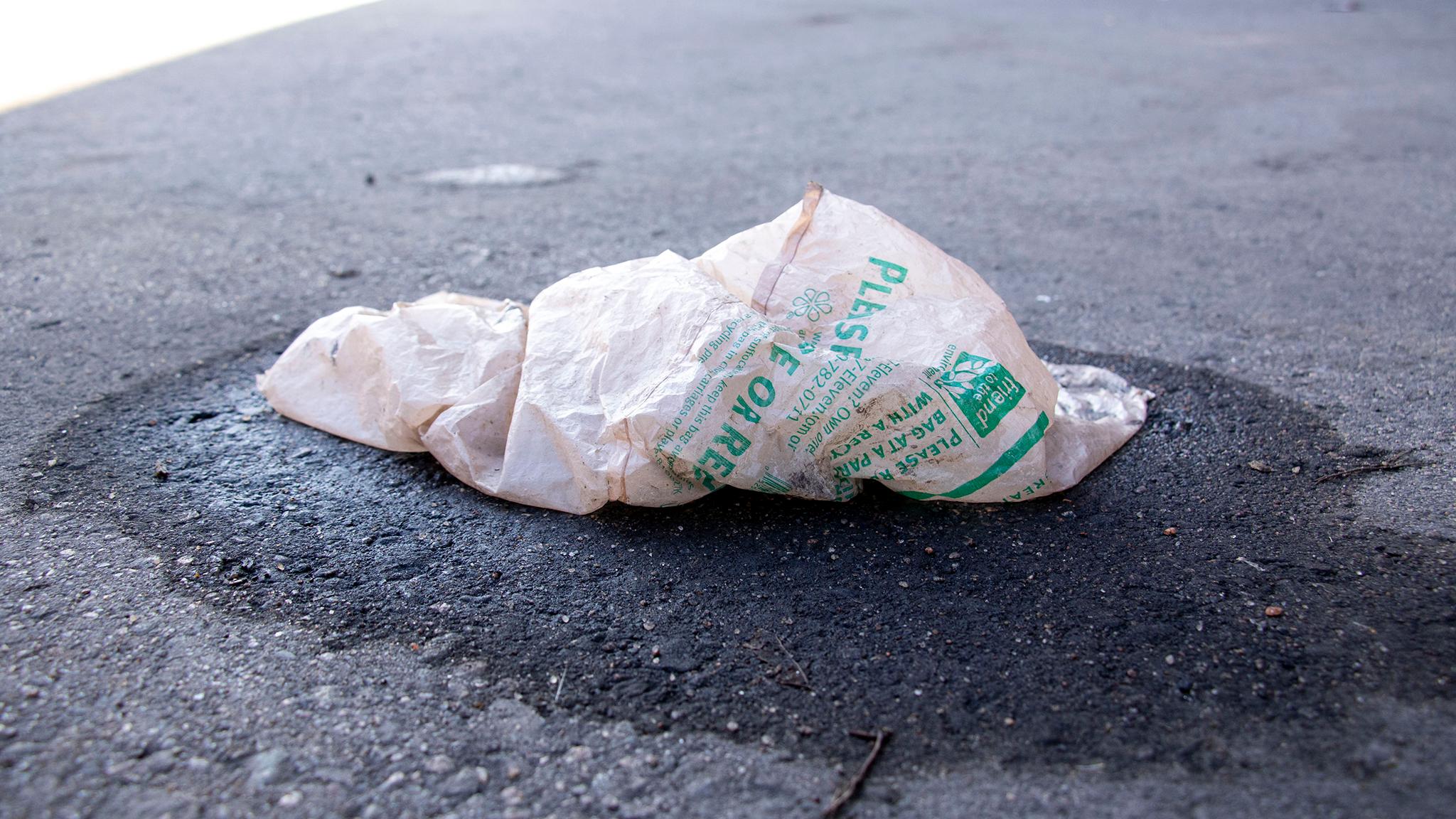Later this month, the Denver City Council will vote on a bill to charge shoppers 10 cents for every plastic and paper bag they use.
Councilwoman Kendra Black, who proposed the law, said she wants to see "single-use" plastic and paper bags -- so-called disposable bags -- drastically cut from everyday life in the name of a cleaner city and preserving natural resources.
Plastic bags are made with natural gas and take more than 500 years to decompose, and even then, they remain as microscopic pieces of plastic, according to city documents. They're the most common type of litter found in the South Platte River behind cigarette butts, and they clog up Denver's trash and recycling systems.
And while paper bags are compostable, they're made with trees and require 1 gallon of water per bag to create.
"The most effective way to get people to bring a reusable bag is to have a small fee on it," Black said. "If you go to the store once and you get five bags of groceries and you have to pay 50 cents, next time you're going to remember to bring a reusable bag."
The governance committee unanimously advanced the bill on Tuesday to a vote of the full Council. Legislators will hold a public hearing before the vote on Dec. 16. If passed, stores would start charging for bags on July 1, 2020.
Six cents per bag will be funneled to the city government to promote the program with advertising and free reusable bags. Shopowners will keep 4 cents to recoup upfront costs and offer free bags, according to the bill.
The law won't apply to certain people and certain goods.
People who receive SNAP, the government benefit commonly called food stamps, won't have to pay for bags. Bags for fish, meat, flowers, newspapers and dry cleaning would also be exempt from the fee.
Councilwoman Debbie Ortega proposed a similar law in 2014 before pulling the plug. The Hancock administration and others did not support the bill, in part because they thought it burdened low-income Denverites.
"Many of the arguments that used to be used against bag fees and bag bans were that low-income communities couldn't afford to do the right thing or that we were pitting portions of our community against each other," said Councilwoman Robin Kniech, adding that "when we connect the cost of your waste to you personally, you become more conscious of what you're doing."
Colorado's oil and gas industry has not taken an official position on the fees. Other industries have.
The Colorado Oil and Gas Association will have "internal conversations" about taking a position, spokesman Scott Prestidge told Denverite. He referenced a 2018 study by Denmark's government that found that reusable bags of other materials, like cotton, can have a larger impact on the environment than plastic -- though the study did not account for the massive problem of ocean litter.
"We often refer to oil and gas as a fundamental building block of our broader economy," Prestidge said. "Whether it's paint on our walls, the carpet on our floors, the asphalt that we drive on, the plastics and components that make up our computers and phones ... it's literally in all of the elements of modern society."
Black's bill gained support from the Colorado Retail Council, which represents big box stores like Walmart and the Colorado Wyoming Petroleum Marketers Association, which represents convenience stores.
"Our goal is to use this model ordinance throughout the state whenever any other city wants to do something similar," said Chris Howes with the Colorado Retail Council.
Denver would be the 12th jurisdiction in the state to regulate plastic bags. Boulder has seen a 70 percent reduction in bag use.
These fees are the first dominos of many that need to fall to make a dent in climate change, officials said.
Black and others wondered out loud at Tuesday's committee meeting whether the city needs to start regulating plastic at the manufacturing level, before products reach consumers.
"This is a door opener," Councilman Paul Kashmann said. "Styrofoam must be the most evil substance ever invented."
If the bill becomes law, retailers will have to file reports with the city quarterly to assess its effectiveness.












